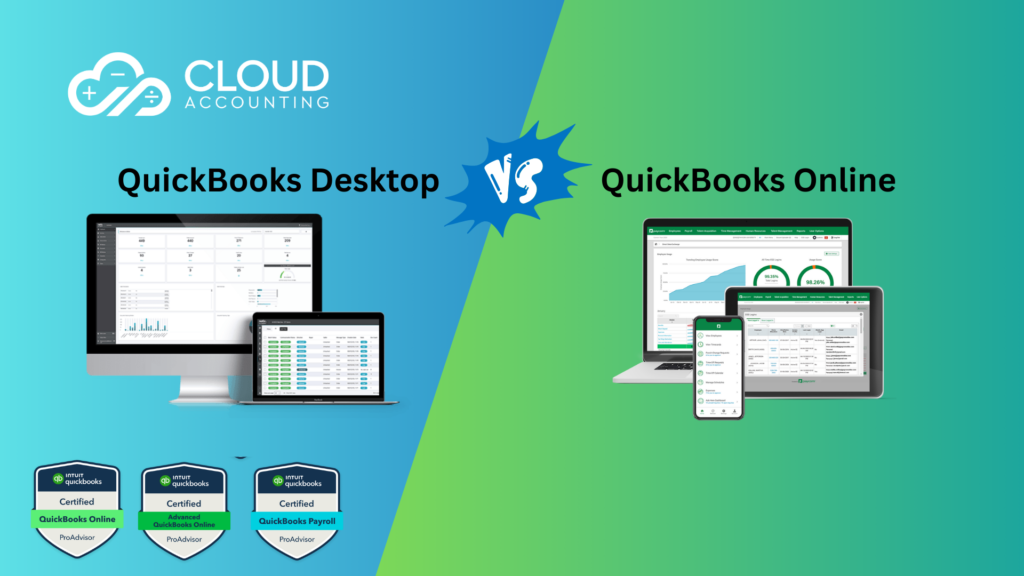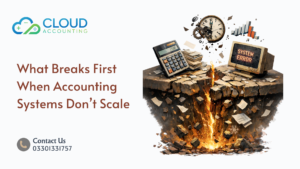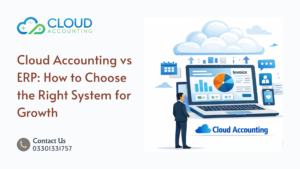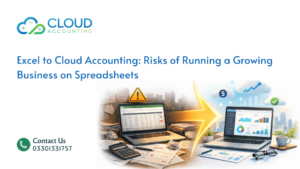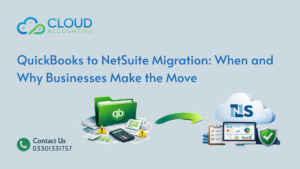As businesses evolve, so do their accounting needs. If you’re still using QuickBooks Desktop, you may wonder whether it’s time to switch to QuickBooks Online. This comprehensive guide by Cloud Accounting (CA), a certified QuickBooks Online Pro Advisor and QuickBooks Advanced Pro Advisor, explores the key differences, advantages of QuickBooks Online, and how to successfully migrate your data.
QuickBooks Desktop: The Traditional Powerhouse
QuickBooks Desktop has long been a popular choice for businesses due to its robust features and reliability. Key advantages include:
- Local Data Storage: QuickBooks Desktop stores data on your local computer, giving you access without the need for an internet connection.
- Advanced Customization: It offers more customization options for reports compared to QuickBooks Online.
- Powerful Inventory Management: Ideal for businesses with complex inventory needs.
However, QuickBooks Desktop has limitations, such as requiring manual updates, limited collaboration capabilities, and lack of mobile access.
QuickBooks Online: Cloud Accounting for Modern Businesses
QuickBooks Online (QBO) provides cloud based access to your financial data, which means you can manage your accounting from anywhere. It’s designed for modern businesses that need flexibility and real time data.
- Cloud Accessibility: Access your financials from any device, at any time. This feature is particularly beneficial for remote work environments and traveling business owners.
- Automatic Updates and Data Backup: With QuickBooks Online, you don’t have to worry about updates or backups. Everything is handled automatically, ensuring you’re always using the most up to date software.
- ThirdParty Integrations: QuickBooks Online integrates with hundreds of apps, automating tasks like invoicing, payroll, and time tracking.
- MultiUser Collaboration: Multiple users can access and update the data simultaneously, making collaboration with your team or accountant seamless.
Key Differences Between QuickBooks Desktop and QuickBooks Online
| Feature | QuickBooks Desktop | QuickBooks Online |
| Data Storage | Local storage | Cloudbased, accessible anywhere |
| MultiUser Collaboration | Limited | Realtime, cloudbased |
| Inventory Management | Advanced | Suitable for small businesses |
| Mobile Access | Not available | Available via mobile app |
| Updates | Manual | Automatic updates |
| ThirdParty Integrations | Limited | Hundreds of integrations |
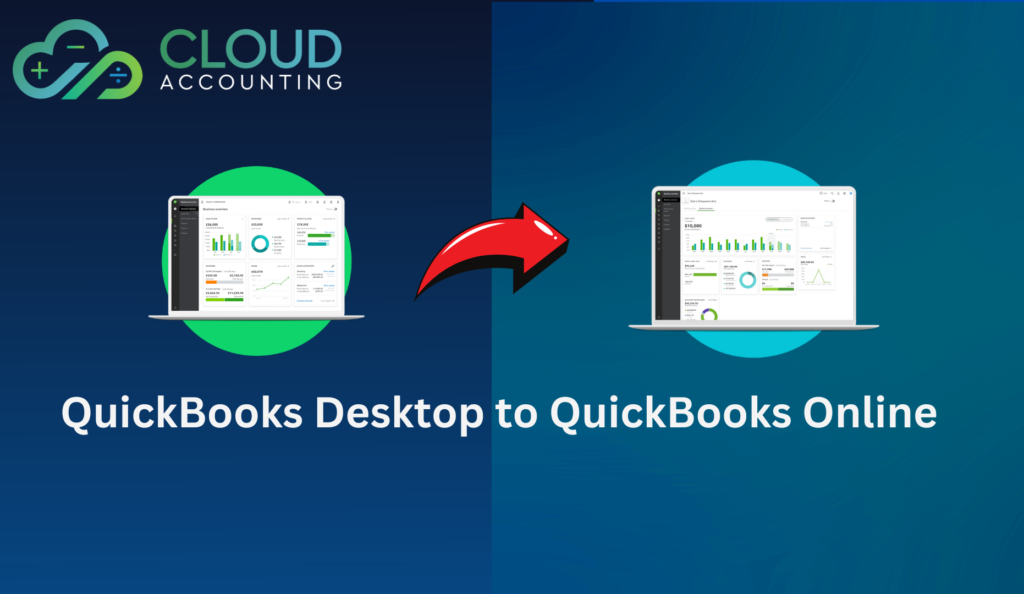
Why Should You Migrate to QuickBooks Online?
If you’re using QuickBooks Desktop and wondering whether it’s time to switch, here are a few compelling reasons why migrating to QuickBooks Online could be a gamechanger for your business:
- Flexibility and Remote Work: In today’s digital world, having access to your financials from any device is crucial. QuickBooks Online allows you to work on your accounting anytime, anywhere.
- Real Time Data Access: QuickBooks Online provides real time data, so you’re always working with the latest financial information. This can be a significant advantage for decision making and financial planning.
- Simplified Collaboration: QuickBooks Online allows multiple users to access your account, making collaboration with your accountant or team easier than ever.
- Cost Efficiency: With QuickBooks Online’s subscription based model, you receive automatic updates and backups, eliminating the need for costly upgrades and maintenance.
- Automation & Integration: QuickBooks Online integrates with hundreds of business apps, helping you automate many of your day to day accounting tasks, from expense tracking to invoice generation.
Steps to Migrate from QuickBooks Desktop to QuickBooks Online
Migrating to QuickBooks Online is a relatively straightforward process, but it’s essential to follow the right steps to ensure your data remains intact:
Backup Your Data: Always start by backing up your QuickBooks Desktop data to prevent any potential loss during the migration.
Check Data Limits: QuickBooks Online has file size limitations, so be sure your data meets the requirements. If not, consider using a third party service to condense your data.
Transfer Your Data: QuickBooks provides built in tools to migrate your company data from Desktop to Online. If the process seems overwhelming, Cloud Accounting (CA), as certified migration experts, can handle the entire migration process for you.
Review and Reconcile: Once your data has been transferred, review all your accounts, reconcile balances, and verify that the migration was successful before fully transitioning to QuickBooks Online.
Conclusion
While QuickBooks Desktop has its merits, the advantages of QuickBooks Online—especially for remote work, collaboration, and automation—make it the better option for many businesses today. If you’re ready for greater flexibility and efficiency, it may be time to switch.
Cloud Accounting (CA), a trusted and certified QuickBooks Online Pro Advisor and Advanced Pro Advisor, specializes in seamless QuickBooks Online migrations. Whether you’re operating locally or across multiple regions, our expertise ensures that your data is accurately transferred, and your business runs smoothly postmigration.
Contact us today to learn more about how we can help with your QuickBooks Online migration!

